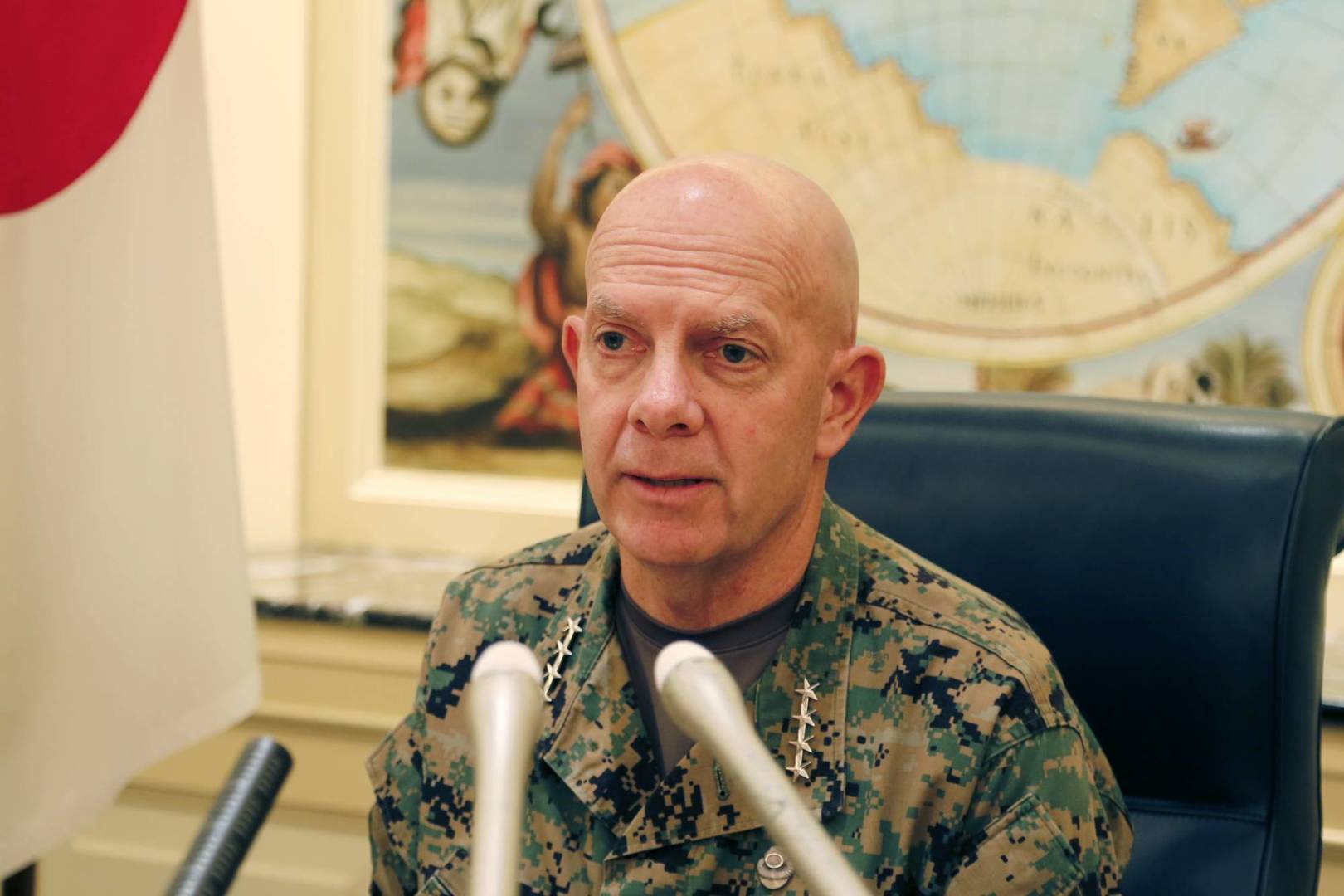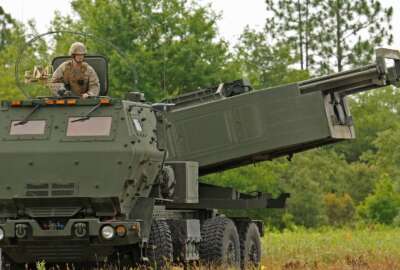Marine Innovation Unit turns to reservists for technical solutions
Marine Innovation Unit expands its staff as it takes on more projects and moves toward full operational status.
It may not have tanks anymore, but the Marine Corps wants to make sure it has cutting edge technology tailored to the force’s unique requirements. One source for that technology — the Marine Innovation Unit (MIU) — is scheduled to reach full operational capability this fall.
The unit primarily employs reservists to fill its ranks, a choice which allows it to draw from private sector talent to get expertise in fields like cyber security, artificial intelligence and robotics.
“The driving assumption that has spawned the Marine Innovation Unit is that we are going to be in a position to leverage this unit with specialized talent, expertise and backgrounds so that we can deliver real outcomes that would otherwise be difficult for the active component to drive in isolation,” Marine Lt. Col. Eric Chase, head of MIU’s defense engagement branch, told Federal News Network.
The unit has been building its resources and talent pool over the last two years, and formally stood up as an activated unit in May. Chase said the unit carefully chose applicants for their private sector experience to bring depth to the unit’s technical abilities. It plans to bring in its third cohort of staff in August in anticipation of reaching full operational capability this fall.
The MIU started with only a dozen staff members and has grown to about 270 with plans to reach 300 by the end of the year. The majority of the staff is made up of reserve officers, with some on short-term duty and some staying for longer-term projects.
“We’re going to be transitioning into execution mode going into fiscal 2024. But we have been executing and delivering value to customers since the inception of MIU. We are working on somewhere in the neighborhood of 100 engagements right now, ranging in different states of completion across each one of our lines of operation,” Chase said.
The unit takes ideas primarily from active-duty Marine components that have a problem in need of a solution. The unit evaluates requests or ideas based on how well they align with Marine priorities before the unit hands them off to a specialist. If MIU thinks the project could work and has staff members with the right expertise, it moves forward.
“We ask ourselves several questions in terms of whether we at MIU can deliver a real impact, deliver real value for our customer — what it will take to deliver that value in terms of resources and time,” Chase said.
One recent project had the unit working with the Defense Innovation Unit and the Marine Corps Warfighting Lab to develop small boats for Marine littoral regiments. The unit helped put together requirements that got the boats through a design process to commercial solicitation in under five months.
“That was one example of where MIU with its partners was able to leverage the talent that we have in-house in terms of acquisition professionals, project managers, technical experts and really accelerate this project from a concept or an idea to an actual commercial solicitation, and do it in a relatively short span of time,” Chase said.
The unit recently played a support role in a larger joint exercise where reserve Marines acted as an attacking force against other branches of service in a simulated cyber-attack against public utilities. The National Guard-led exercise included cyber-protection teams from five New England states. Marines from MIU acted as technical advisors in the exercise, called “cyber Yankee,” in securing and defending the operational technology networks and industrial control systems responsible for running critical infrastructure.
“They were able to contribute in a meaningful way to this joint National Guard-led exercise involving state level, federal level and folks from DoD to integrate across different layers where the reality is that these artificial boundaries we create don’t exist in the cyber domain,” Chase said. “Being able to work through those issues in joint interagency ways is absolutely critical for the posture that we’re going to need to deliver going forward.”
Copyright © 2025 Federal News Network. All rights reserved. This website is not intended for users located within the European Economic Area.
Alexandra Lohr, a former staff member, covered the Defense Department for Federal News Network until September 2023.






